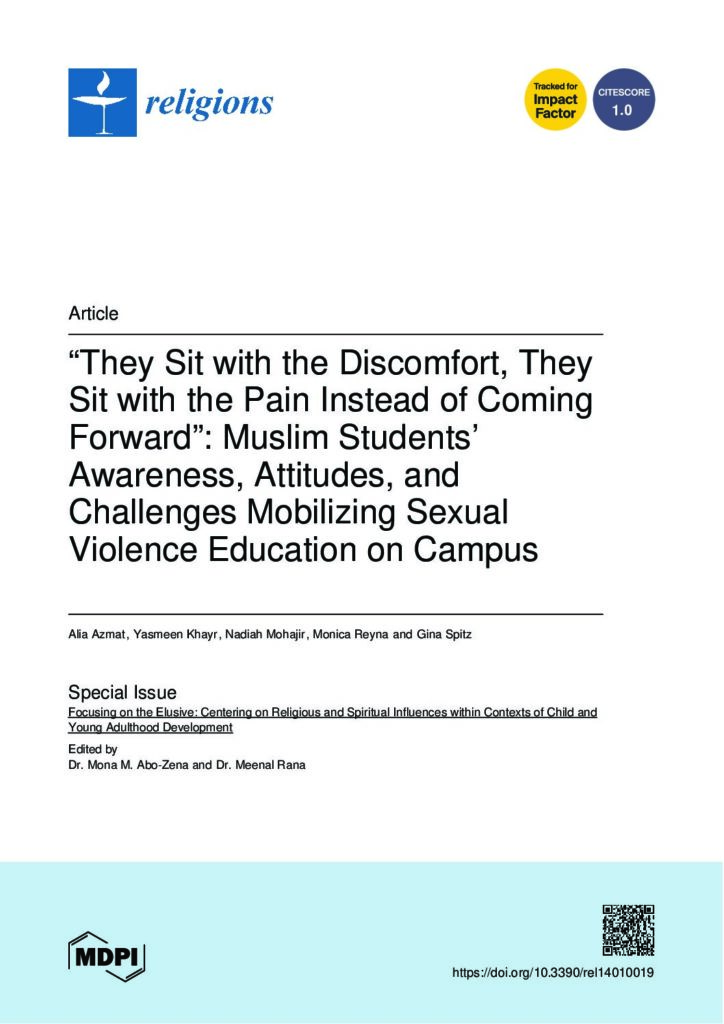There is limited literature on anti-sexual violence programming on college campuses for historically underrepresented groups in the United States, including, and especially, for Muslim students. This study will explore the following questions: (a) What is Muslim students’ awareness of sexual violence on college campuses? (b) What are Muslim students’ attitudes towards sexual violence?, and (c) What challenges do Muslim survivors and allies of sexual violence face on college campuses? A mixed methods analysis of quantitative (n = 91) and qualitative data (n = 8) was utilized to understand the impact of anti-sexual violence advocacy programming on college campuses. Results demonstrate that Muslim women reported knowing more survivors of sexual assault than Muslim men. Women also reported significantly higher levels of disagreement with victim-blaming statements compared to men. Qualitative interviews with eight student leaders demonstrated challenges to sexual assault programming on campus, include Islamophobia, power struggles between student groups, denial that sexual violence is a problem, and a lack of engagement from men. Results from this study highlight several key findings including (1) rape culture attitudes vary significantly between Muslim men and Muslim women, (2) barriers to facilitating sexual violence programming include several systems of oppression, and (3) the urgent need to provide nuanced programming to support minoritized youth communities on college campuses.
Sex education and advocacy for Muslims

